An introvert's guide to creating things people want
Understanding people and how they want is challenging. We have more information than insight and less time than ideas. Let's tackle those!
Ended
I've spent many weeks in a chaotic state,
shuffling between two seemingly contradictory extremes -- every task appears to be the most important, or every thing I do is an urgent response to some specific, perhaps insignificant, issue.
I ask:
1. How do I focus when all priorities seem to be the most important?
2. How do I make meaning out of urgent busywork?
Here's what I've tried and seen work well!
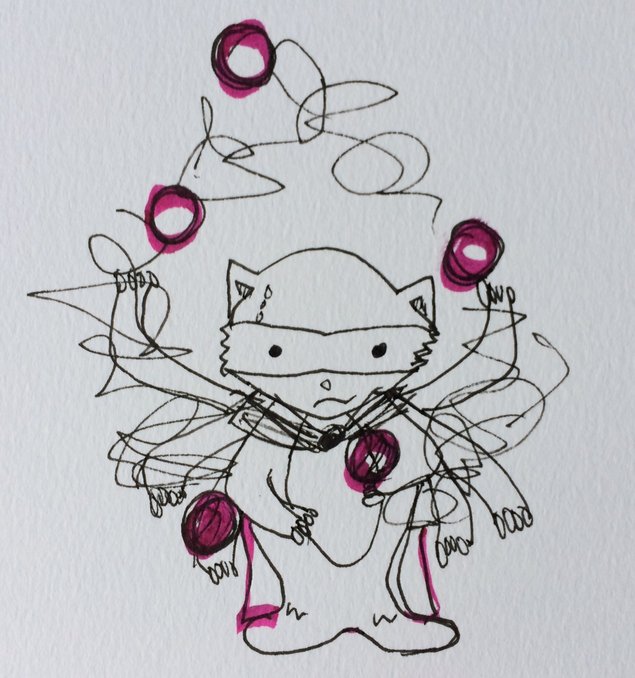
1. RE: Most important priorities.
a. On some days, every project and task seems like the most important one!
A way I like to break down "must do"s into more concrete categories
is by using Niel Nickolaisen model from Stand Back And Deliver.
Stakeholders ask two questions for each task:
Is it mission critical? (Can this type of business go on without it?)
Is it market differentiating? (Does it bring in new customers, provide competitive advantage, or something similar?)
Give tasks with yeses in "critical" 1 point, and those with yeses in "differentiating" 2 points!
Focus on tasks that are both critical and differentiating, or just differentiating. Partner or outsource or spend a passing level of energy on the others.
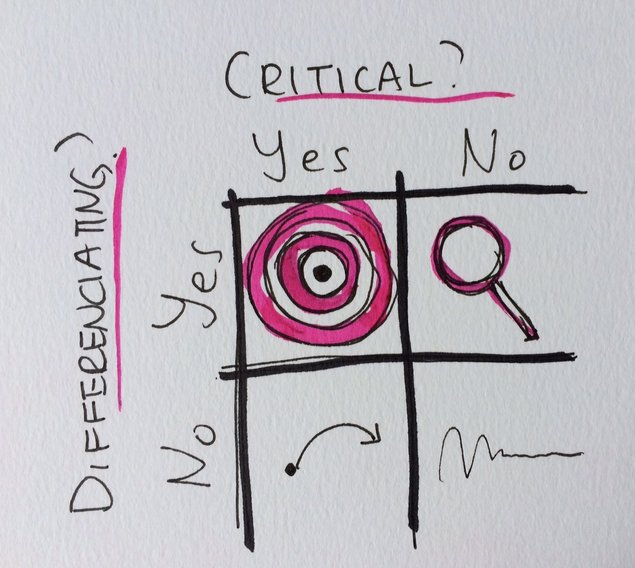
b. With a new venture, I easily dream big, getting detailed with things I want to launch a few years down the line. I feel as if I can do all of that right now.
To focus on what's critical now, I refer to Alistair Croll and Benjamin Yoskovitz 5-stage growth product model from Lean Analytics.
Empathy: figuring out a real problem, and a solution that people will pay for
Stickiness: creating a product that keeps users around
Virality: growing the user base organically and artificially
Revenue: establishing a sustainable, scalable business model in a healthy ecosystem
Scale: streamlining growing the business
The focus should always be the earliest one that's still wobbly.
One easy way to figure out which stage to focus on is to ask each member of the team to independently pick their earliest, not-so-strong stage, and compare notes.
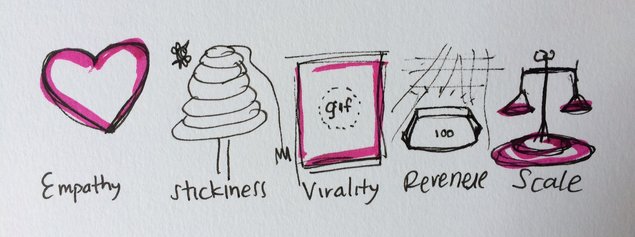
2. RE: Urgent busywork.
a. Sometimes, there are a billion tiny things that must be done ASAP. It's easy to end up with long lists of things to try, fix, start, ask, or meet about. I feel weighed down by such lists.
To reenergise in the face of urgent busywork, I link each tiny task with a bigger goal -- some impact to be made, behaviour to be changed, value to be enabled, or emotion to be aroused.
These user- or customer-centered goals are sometimes called "stories." Gojko Adzic and David Evans in Fifty Quick Ideas To Improve Your User Stories suggests naming milestones, tech releases, task bundles creatively, to honour the bigger impact at play. (They have 49 other specific, effective ideas!)
It feels great for me, and the teams I've worked with, to complete all of the tasks connected by a common mission. All of those little, urgent, tasks become more purposeful -- like single Lego pieces forming a badass castle.
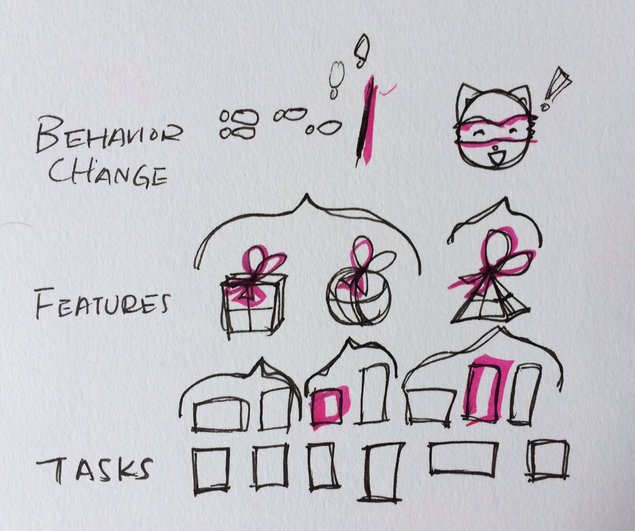
b. Productivity is fuelled by many things, and passion is a particularly potent fuel.
Sometimes, I have lots to do, and what I want to do most is not the most pressing thing. As I work on those other, not-so-passion-filled things, I keep thinking back to that project or feature that I am excited about. So, I decide I might as well dive into the thing that excites me!
Passion is what makes work energising. It increases productivity, engagement, and retention. (For research on this, see The Energy Project.)
When working with passion, I'm careful of two things:
+ find the root of what makes me excited, as its a great way to fan the flame and let that fire spread to other projects
+ notice where my ego is at stake, consider what failure would look like, and enforce my "everything is an experiment" mindset.
If a teammate is working on a feature they're excited about, I ask them questions around those two topics as well.
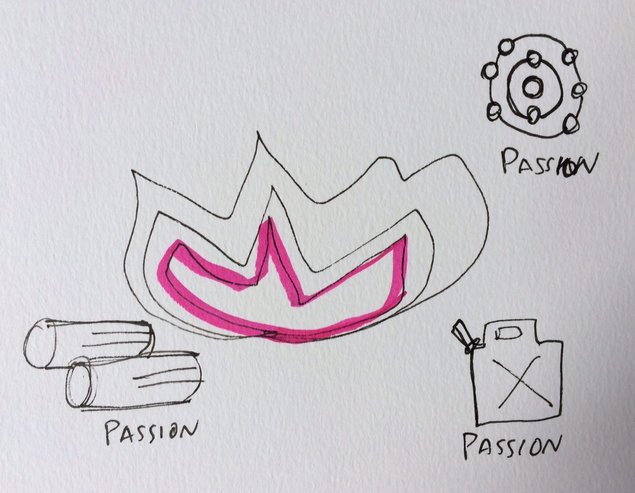
Happy Chinese New Year!
Angela O
angelaognev@gmail.com